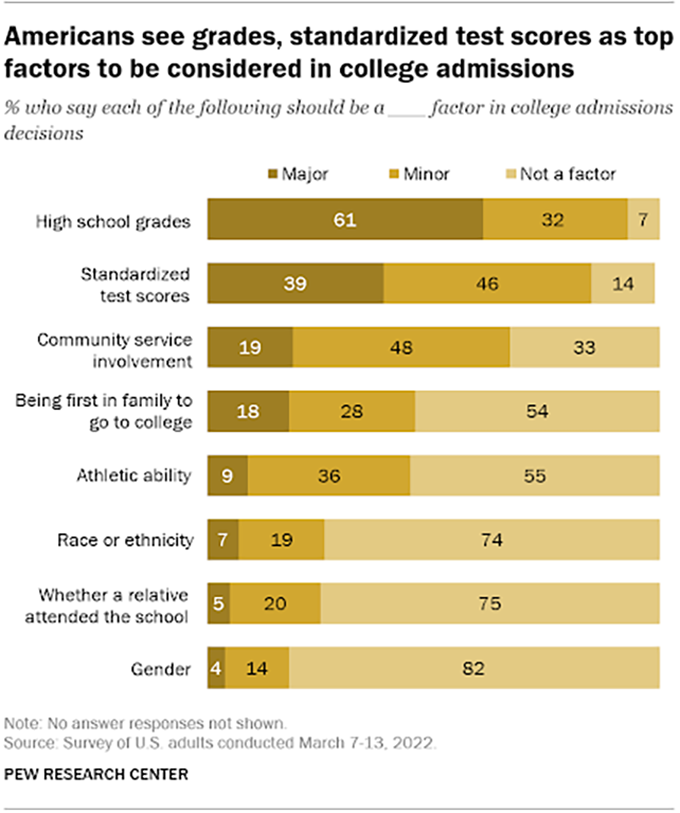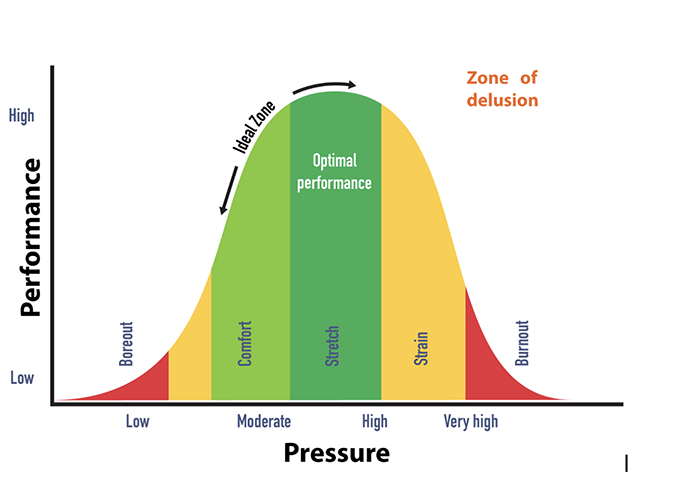 Every adult remembers what their SATs and ACTs were like. For many, the days leading up to the tests felt like something straight out of a nightmare. Even now, not much has changed. So many students struggle with the heavy side serving of stress, anxiety, and pressure that these tests usually come with.
So, how can parents help their kids avoid the negative effects of standardized testing while building up their confidence? That’s exactly what we’ll explore in this guide. Let’s get into it.
Every adult remembers what their SATs and ACTs were like. For many, the days leading up to the tests felt like something straight out of a nightmare. Even now, not much has changed. So many students struggle with the heavy side serving of stress, anxiety, and pressure that these tests usually come with.
So, how can parents help their kids avoid the negative effects of standardized testing while building up their confidence? That’s exactly what we’ll explore in this guide. Let’s get into it.
What Is Standardized Testing, and What Are the Most Common Types?
Standardized tests are exams that give everyone the same set of questions and score them based on the same standards or rules. Simply put, they measure student success using a uniform system.
The idea behind these high-stakes tests is simple — they check everyone’s academic performance using an approach that ensures equal footing for everyone. Sounds great in theory, but not so much in practice (more on that later).
The most common types of these exams are:
- American College Test (ACT);
- Scholastic Aptitude Test (SAT);
- Advanced Placement (AP) exams;
- STAR Reading, Early Literacy, and Maths tests;
- General Educational Development (GED) tests.
Broadly, you can classify all kinds of tests as either psychological tests, aptitude tests, or achievement tests. The college admissions tests fall under this last category.
These are the ACTs and SATs — two exams that can cause a lot of test anxiety, which is totally understandable. After all, their result can affect which college current high school students will be able to get into.
What Is the Problem With Standardized Testing?
While all these standardized assessments are very popular, many people argue that they may not be the best method to accurately determine the student’s achievement, let alone to judge the admission process. Here’s why:
#1 It Isn’t a Fair Reflection of Students’ Learning Abilities
If anything, standardized exams are really a more accurate measure of how good students are at memorizing stuff. Let’s face it: in a class of twenty people, you’re bound to find different learning styles instead of just one.
That’s why using a single type of testing method doesn’t work for everyone. Neurodivergent students and those with learning disabilities are going to be at a disadvantage.
Besides, many studies (like this one) suggest that high school grades are a better predictor of college performance than SAT scores. Why? Apparently, high school grade point average (HSGPA) is driven mostly by self-regulation, with cognitive ability playing the smallest role.
Meanwhile, SAT scores tell a different story — cognitive ability and demographics are the biggest factors. That’s why this study argues that self-regulation is far more important for overall college success and on-time graduation.
 Besides, students from low-income school districts are worse hit. They can’t afford expensive tutoring and test preparation materials. This alone makes them more likely to be under-prepared and end up with worse test results.
For exaple, kids from low-income families don’t do as well as other students when it comes to these high-stakes tests. Some research even suggests that standardized testing is a more accurate measure of “the wealth students are born into” than their abilities.
Maybe this is why 46% of Americans think that standardized test scores should be a minor factor in college admissions:
Besides, students from low-income school districts are worse hit. They can’t afford expensive tutoring and test preparation materials. This alone makes them more likely to be under-prepared and end up with worse test results.
For exaple, kids from low-income families don’t do as well as other students when it comes to these high-stakes tests. Some research even suggests that standardized testing is a more accurate measure of “the wealth students are born into” than their abilities.
Maybe this is why 46% of Americans think that standardized test scores should be a minor factor in college admissions:

#2 It Skews the Educational Process
There is a lot of pressure on schools and teachers to ensure that their students do well in these high-stakes tests. This can lead to situations where many institutions almost ignore other areas of high school education, like History, Arts, Music, etc.
Most standardized tests are focused on select subjects like Maths, Science, and English. At the same time, there is less attention being paid to social studies.
The No Child Left Behind Act, introduced to ensure that all students gain adequate knowledge for the future, backfired. It ended up becoming a contributing factor to tests being prioritized over actual learning.
 Plus, in some cases, the test scores are also used as a measure of schools’ performance and even affect teachers’ reviews. Some people even suspect that it can affect school funding. This means entire school districts might decide to focus on test subjects to improve their scores.
Plus, in some cases, the test scores are also used as a measure of schools’ performance and even affect teachers’ reviews. Some people even suspect that it can affect school funding. This means entire school districts might decide to focus on test subjects to improve their scores.
#3 It Has High Mental Health Costs
Many high school students preparing to take standardized tests have to deal with a lot of test anxiety. Some sources say that 25-40% of them go through this.
There is a lot riding on their test scores — it can affect their graduation, college admissions, and even how others may view them. As a result, these high-stakes tests can cause fear and stress, which makes the anxiety even worse.
In reality, moderate amounts of stress are great for optimal performance. According to the Yerkes-Dodson law, the ‘right’ pressure that feels comfortable can significantly improve overall concentration and self-control.
 Still, those affected by the very high pressure can end up with burnout and poor test scores. This can create negative feedback, making tests an experience that’s linked to shame, low self-esteem, and pain.
Still, those affected by the very high pressure can end up with burnout and poor test scores. This can create negative feedback, making tests an experience that’s linked to shame, low self-esteem, and pain.
#4 It Doesn’t Encourage Creative Expressions
Just as there are different learning styles, so it is with creative expressions.
With high-stakes exams, the main approach many students and teachers take seems to favor rote memorization. The facts and formulas memorized are usually forgotten once the objective has been achieved.
Of course, good teachers will try to adjust the subjects as close to life activities as possible. But there is no guarantee that this is the case everywhere.
Still, more often than not, students who are encouraged to be creative have less anxiety and do better on tests. The results are even more impressive when the exams are not a one-size-fits-all
like the standardized tests. Students who are judged on performance-based assessments tend to do better and feel better about themselves, too.
4 Tips to Help Your Child Prepare for Standardized Tests
In an ideal world, standardized tests would be designed to match each student’s learning strengths. But in reality, it’s a whole different game.
Still, you can take some steps to boost your child’s confidence before any high-stakes test, such as:
Tip 1: Get Involved With Your Child’s Homework Before the Test
As much as possible, parents need to be involved with their child’s education from their early years. This can make studying for school a bonding experience.
Besides, this can be a good way to start preparing students for standardized tests as early as possible. A method that is worlds ahead of the gunshot cramming method.
In some cases, especially when the child has a learning disability, work with the child’s teachers to see how to help them get ready for the standardized tests.
Also, reviewing their reports with them and listening to your kid’s suggestions won’t hurt either. Students who perform really well throughout their school often have strong support back home. Who knows, your child might be the next valedictorian at their graduation.
Still, if you feel like your support alone isn’t enough, or you don’t have enough time, you can always get professional help from tutors. Just make sure you find someone who is the right match for your child.
You could also create some milestones and match them with rewards to keep your young learner motivated. It can be anything that your kid could enjoy.
Tip 2: Don’t Prioritize Test Scores Above All Else
Getting really high standardized test scores is a pretty big deal. But make no mistakes. You are likely to get the other end of the short stick if all you do is focus on learning for the sake of passing tests.
Instead, you want your kids to value knowledge over the numbers on their scorecards. This will help them develop a good sense of well-being that is hinged on more tangible academic achievements.
Also, make it easy for them to access mental health resources when needed. This includes their guidance counselor, support groups, and, in some cases, mental health hotlines. Students who fail can sometimes struggle with their identity and sense of worth. It’s worse if they have been known for their high academic achievement over the years.
Tip 3: Don’t Wait Till the Last Minute to Introduce Your Kids to Practice Tests
It helps everyone involved (parents, teachers, and students) to understand a child’s level of readiness for the test.
Thankfully, there are many free official and third-party practice tests that can be used online at any time. You can start with official sources, like the Bluebook App, the College Board’s SAT Suite Question Bank, and Khan Academy. But you’ll quickly notice that the number of practice questions there is limited.
Still, there are plenty of other great options out there with almost unlimited practice questions. Just test different tools and see what works better for your child. It’s best to use free resources first and then add on when (and if) needed.
Tip 4: Encourage Your Kid to Take Enough Rest
Many test takers tend to push themselves beyond their limits, consuming caffeine and studying for long stretches of time.
But as anyone who has ever spent time teaching can tell you, trading sleep for an all-night caffeine binge never works as well as intended.
Sure, some students manage to choose enough correct answers on the multiple-choice questions to pass. But many more end up with the wrong responses and a nasty headache to show for the stress.
After all, your kid is more likely to do better in their exams with a well-rested, high-performing brain than when they have to deal with a lot of stress. So, reminding them about rest might be exactly what they need.
Conclusion
Let’s be real — it’s a big ask to expect a standardized test to fully capture a student’s knowledge and intelligence. While we can push for more performance-based assessments, the reality is that these tests aren’t going anywhere anytime soon.
That’s why you can use the strategies above to support your kid in improving their scores. Encourage them to read this blog with you and pick up these tips themselves. The more supported they feel, the less overwhelmed they’ll be.
Tags: standardized tests
 Every adult remembers what their SATs and ACTs were like. For many, the days leading up to the tests felt like something straight out of a nightmare. Even now, not much has changed. So many students struggle with the heavy side serving of stress, anxiety, and pressure that these tests usually come with.
So, how can parents help their kids avoid the negative effects of standardized testing while building up their confidence? That’s exactly what we’ll explore in this guide. Let’s get into it.
Every adult remembers what their SATs and ACTs were like. For many, the days leading up to the tests felt like something straight out of a nightmare. Even now, not much has changed. So many students struggle with the heavy side serving of stress, anxiety, and pressure that these tests usually come with.
So, how can parents help their kids avoid the negative effects of standardized testing while building up their confidence? That’s exactly what we’ll explore in this guide. Let’s get into it.
 Besides, students from low-income school districts are worse hit. They can’t afford expensive tutoring and test preparation materials. This alone makes them more likely to be under-prepared and end up with worse test results.
For exaple, kids from low-income families don’t do as well as other students when it comes to these high-stakes tests. Some research even suggests that standardized testing is a more accurate measure of “the wealth students are born into” than their abilities.
Maybe this is why 46% of Americans think that standardized test scores should be a minor factor in college admissions:
Besides, students from low-income school districts are worse hit. They can’t afford expensive tutoring and test preparation materials. This alone makes them more likely to be under-prepared and end up with worse test results.
For exaple, kids from low-income families don’t do as well as other students when it comes to these high-stakes tests. Some research even suggests that standardized testing is a more accurate measure of “the wealth students are born into” than their abilities.
Maybe this is why 46% of Americans think that standardized test scores should be a minor factor in college admissions:

 Plus, in some cases, the test scores are also used as a measure of schools’ performance and even affect teachers’ reviews. Some people even suspect that it can affect school funding. This means entire school districts might decide to focus on test subjects to improve their scores.
Plus, in some cases, the test scores are also used as a measure of schools’ performance and even affect teachers’ reviews. Some people even suspect that it can affect school funding. This means entire school districts might decide to focus on test subjects to improve their scores.
 Still, those affected by the very high pressure can end up with burnout and poor test scores. This can create negative feedback, making tests an experience that’s linked to shame, low self-esteem, and pain.
Still, those affected by the very high pressure can end up with burnout and poor test scores. This can create negative feedback, making tests an experience that’s linked to shame, low self-esteem, and pain.